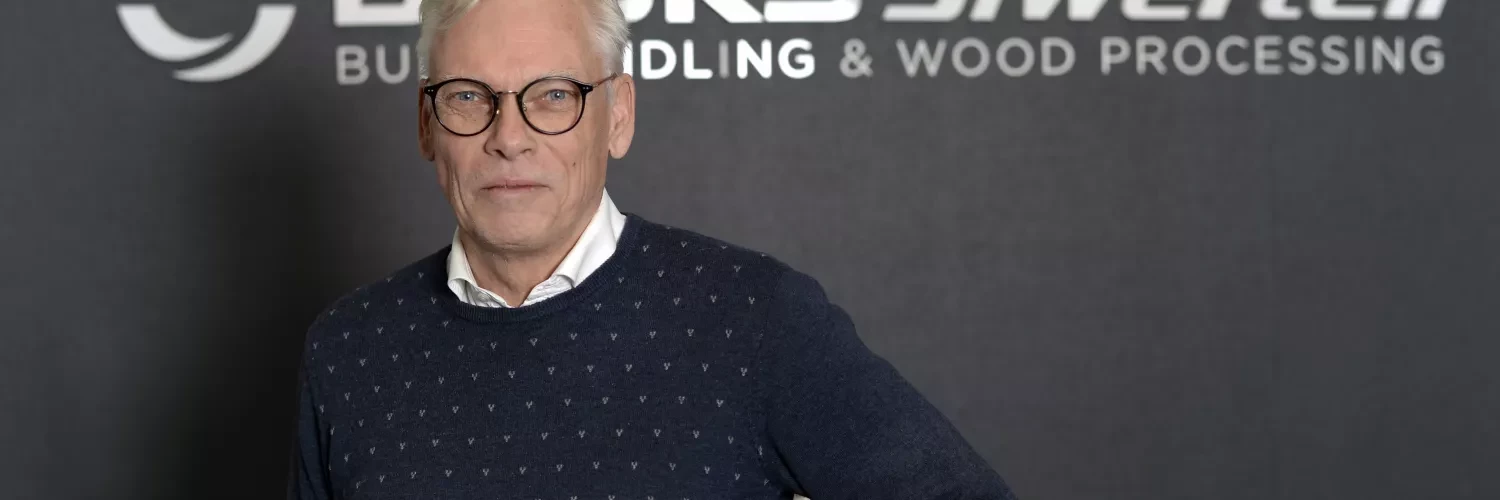I started at the company at an exciting time, as the person responsible for the development of our mobile ship unloaders’ product line, now a commercial success. After this, I moved to Hong Kong as a sales manager, responsible for the Chinese market for around seven years, moving back to Sweden to manage the division for self-unloaders for ten years. This is now part of Cargotec.
In 2012 I moved back to Hong Kong, and worked for another company there until 2019, when I moved again, returning to what is now Bruks Siwertell to assume my current role, which is based in Manila, the Philippines.
The referenced media source is missing and needs to be re-embedded.
Road-mobile debut
My most prominent Siwertell story was the sale and installation of the very first mobile Siwertell ship unloader in 1991. It was something that we had been intensively working towards as a team, and it was an incredibly proud moment for us all to see it up and running.
The Siwertell 5 000 S road-mobile unloader was installed in the USA at River Cement’s terminal in Memphis, Tennessee, and being the very first installation of a totally new product line, there were some technical challenges to overcome. Due to the seven-hour time difference between us and the operator, things always tended to happen during our nighttime, leading to many sleepless nights spent on the telephone.
It did not matter, the whole team wanted one thing, the successful application of our mobile ship unloading technology. We all dedicated ourselves to solving whatever issues arose, and the result was a very happy customer.
The installation also represented the true commercial start of our successful range of road-mobile ship unloading technology, which now has a worldwide reputation for flexibility, efficiency and reliability. I believe that the introduction of this technology has been a notable moment in the company’s development, widening the opportunities for Siwertell dry bulk handling technology and enabling us to enter various new dry bulk markets.
Rapidly arising benefits
Like all Siwertell ship unloaders, road-mobile to large-scale fixed installations, the key to the technology is its efficiency and environmental capabilities. The major innovation that brings this about is the counter-rotating inlet feeder – this essentially started the brand.
Given my long experience with Siwertell ship unloading equipment, I can see how our customers pretty quickly benefit from installing our technology after start up. I have met, and have excellent relationships with customers who have really appreciated these advantages, whether that be in terms of through-ship efficiencies, profitability, or environmental impact, and those benefits have extended to the communities they serve as well.
Selling and delivering a product that lives up to a customer’s high expectations requires an experienced team and effective teamwork throughout the entire organization; we all have an important role to play. But it does not stop there, being surrounded by like-minded colleagues, which make you feel like part of a family, is also very important on a personal level. It is good for cultivating and maintaining an engaging and inclusive working environment, which helps people realize the full extent of their capabilities.
Big data holds the key
Continuous technological development processes are important. They ensure that our dry bulk handling equipment is continually being updated and improved, including the adoption of new digital technologies, which will enable it to not only keep pace with tomorrow’s market demands, but continue to set the standard.
Fully connected ship loaders and ship unloaders will make it possible to support customers remotely in a totally new and better way. Furthermore, over time, a lot of data from various unloading operations will be available for in-depth analysis to apply and embed this knowledge into our dry bulk handling technology and establish ‘best practice’ when it comes to optimizing customer operations. Big data analysis will be a critical tool in these future developments.
Changing times, environmental scrutiny
These are changing times, the dry bulk market has moved a lot over five decades, and in recent years, we have faced greater competition. This is a challenge, but these systems are less mature, some distance technologically from Siwertell dry bulk handling equipment, and they lack the backing of our extensive experience as well.
They are not like-for-like, and one of the greatest advantages that we hold over these systems, is our substantial installation base, knowledge that we can readily draw upon when developing new, tailormade designs. This is unique to us; we have such a large number of references worldwide that nobody else has.
From a general point-of-view, the most significant dry bulk sector shift has been tougher environmental requirements in ports, which is absolutely the right direction that we need to go in, and puts enclosed Siwertell ship unloading and ship loading technology at an inherent advantage over open-air handling systems such as grab cranes.
If I think about Siwertell technology’s role and impact over the last fifty years, it has already significantly improved the efficiency of dry bulk handling operations on a global basis, and had a profound positive impact on the environment where it has been installed. My hope for the next fifty years is that it will achieve more of the same, but with even more improved functionality and lower cost of ownership.
Going forward, I believe that environmental sustainability will be the most significant opportunity and challenge for the dry bulk industry, and in line with this, the environmental aspects of ship loading and ship unloading will be under increasing scrutiny. I expect we will see a greater move towards enclosed dry bulk handling.
 Bruks-Siwertell
Bruks-Siwertell
